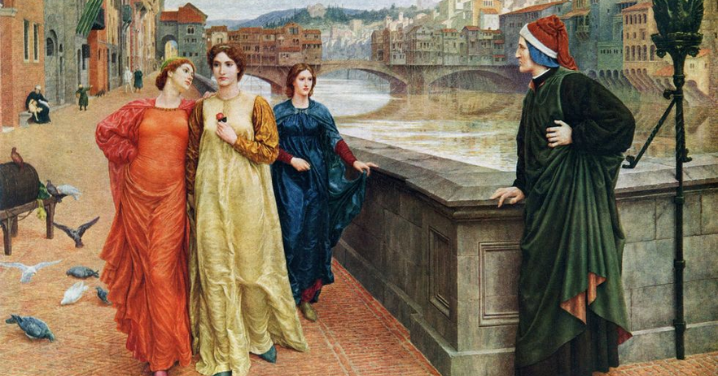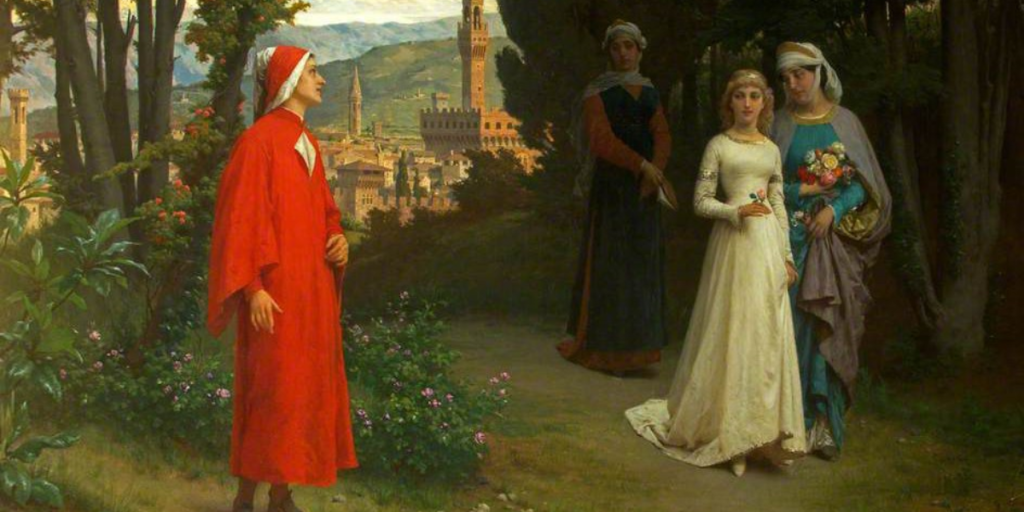
In the realm of literature, few muses have burned as brightly as Beatrice Portinari, the woman who captured the heart and imagination of Dante Alighieri. Their story is not one of shared experiences or prolonged interaction but of a fleeting connection that blossomed into a timeless inspiration.
Dante first encountered Beatrice when he was just nine years old, a moment he would later describe as transformative. She was eight, a girl of striking beauty with emerald-green eyes that seemed to hold an otherworldly grace. For Dante, it was love at first sight, though their meeting was brief. Despite the years and lives that separated them, this moment would become a cornerstone of his poetic vision.
Years later, the two crossed paths again in Florence, now as adults. This second meeting was equally fleeting: Beatrice, elegant and poised, turned to greet Dante as they passed one another on the street. Her simple act of acknowledging him was enough to ignite a fire within the poet’s soul. Yet their lives moved on separate trajectories. Beatrice married another, and Dante remained a silent admirer, cherishing her from afar.
Tragically, Beatrice’s life was cut short in 1290 when she died at the age of 24. The loss devastated Dante, who had never truly known her beyond those brief encounters. But in his grief, he found a muse. Beatrice became an idealised figure in his works, a symbol of divine love, purity, and salvation.
In La Vita Nuova (The New Life), Dante wrote of his adoration for Beatrice, portraying her as an almost celestial being who elevated his soul. Yet it was in The Divine Comedy where her influence shone most brightly. Beatrice appears as a central figure in this epic journey, guiding Dante through Paradise and embodying divine grace and virtue.
For Dante, Beatrice was more than a muse; she was a spiritual ideal. He described her as “the glorious lady of my mind,” “the destroyer of all vices,” and “the queen of virtue.” Through her, he sought to articulate the connection between earthly love and divine salvation. She became the bridge between the temporal and the eternal, the human and the divine.
Though Dante and Beatrice’s story lacks the tangible closeness of traditional love, it reveals the transformative power of admiration and longing. Beatrice, with her brief yet profound presence in Dante’s life, inspired works that have resonated across centuries, influencing literature, philosophy, and theology.
Their story serves as a reminder of the enduring power of love, even when unfulfilled. It highlights how even the briefest of connections can leave an indelible mark on the human spirit, shaping art and thought for generations to come.




